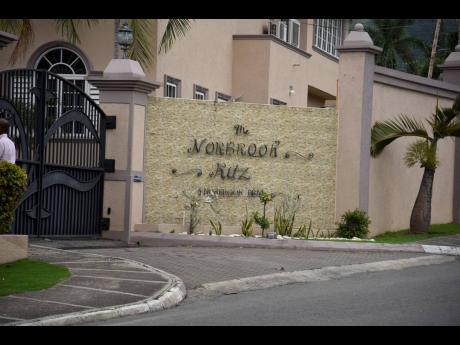Drug boss loses appeal to keep $500m worth of assets
Jamaica’s second-highest court has turned away a last-gasp attempt by a convicted drug boss to hold on to his portfolio of assets worth over $500 million.
The Court of Appeal, on Friday, refused an application by lawyers for Andrew Hamilton for leave to challenge a forfeiture order made by the Supreme Court on July 8 that handed possession of the assets to the Government.
An application for the forfeiture order to be placed on hold was also refused, according to the ruling by a panel of three judges.
The order stripped Hamilton, his associates and members of his family, including his elderly mother, of 14 multimillion-dollar homes; four motor vehicles; four bulldozers; a fishing vessel purchased for $19 million and a bank account containing $19 million.
Some of the assets have already been transferred to the State.
It is the largest forfeiture order obtained by the Financial Investigations Division (FID), the agency that enforces Jamaica’s Proceeds of Crime Act (POCA), the legislation crafted to deprive criminals of their ill-gotten gains.
The homes include a penthouse suite and two apartments in the gated Norbrook Ritz complex, located in the upper-class neighbourhood of Norbrook, St Andrew; six apartments in the gated Monte Carlo Isle complex, also in St Andrew; and a mansion in Ironshore, St James.
A review of court records showed that five of the Monte Carlo Isle apartments and the lots for two of the Norbrook units were acquired over a seven-day period, ending on June 25, 2008, for a total of J$61 million and US$300,000.
The others were acquired two days apart in March that year.
Calls to Ian Wilkinson, the attorney who represented Hamilton and some of his relatives, went unanswered on Friday. But according to a court transcript of the appeal hearing, Wilkinson argued that the judge who granted the forfeiture order “failed to properly consider the fact that some of the properties were not recoverable” because they were acquired before May 30, 2007 and therefore would not be affected by the POCA.
The POCA, which governs forfeiture orders, took effect on May 30, 2007.
The attorney submitted, too, that other persons who are not parties to the court action are affected, but have not been given an opportunity to be heard.
Dismissed by the panel
Both arguments were, however, dismissed by the panel of three appeal court judges who noted that “no such party is before the court” and invoked Section 55 subsection 3 of the POCA.
“For the purpose of deciding whether or not property was recoverable at any time, including any time before the appointed day, it shall be deemed that this Part [Part IV dealing with the civil recovery of property] was in force at that and any other relevant time,” the subsection reads.
“None of the other proposed grounds [of appeal] raises any real prospect of success. Accordingly, the application for leave to appeal must be refused.”
Hamilton – a former Jamaican cop and postal worker who is believed to have amassed a $1-billion asset portfolio, comprising more than two dozen luxury homes and cars – pleaded guilty in 2012 to money laundering and conspiracy to deal in ganja in California, in the United States. He was sentenced in February 2014 to four years in prison, records show.
Following the conviction, the US Drug Enforcement Agency requested that Jamaican authorities conduct a civil investigation into Hamilton’s assets here, and that’s when the FID discovered the drug dealer’s staggering wealth.
Hamilton and members of his family were arrested by the Jamaican police in December 2016 on money laundering charges, along with attorney Dawn Satterswaite, who is accused of fronting the real estate purchases.
That case is ongoing.

